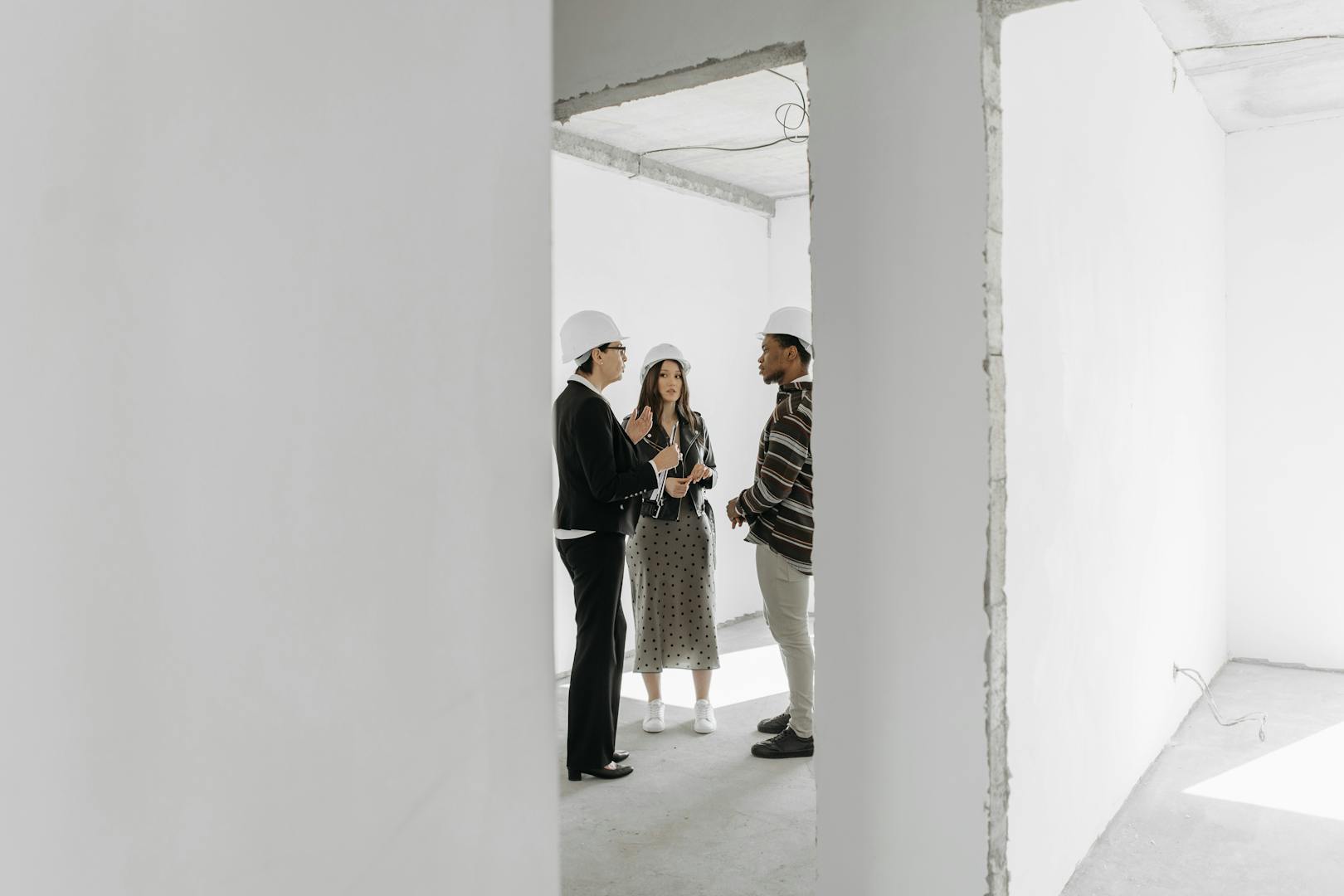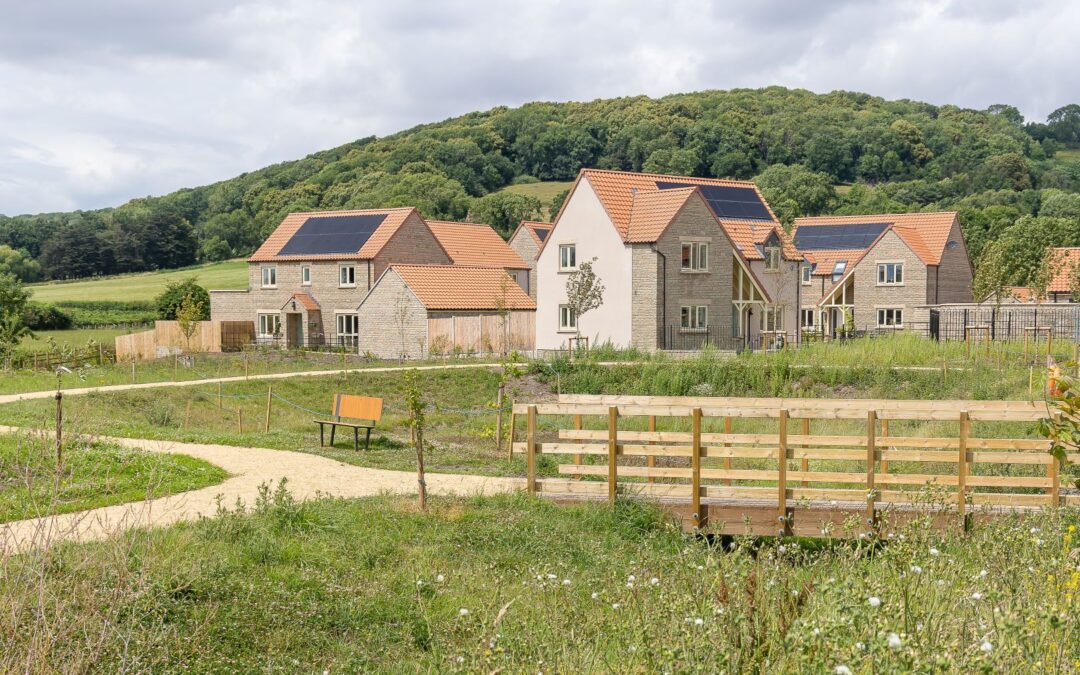A guide to buying off-plan property
Off-plan properties are gaining significant traction among home buyers, and for good reason.
More investors are recognising the value in purchasing properties before they are built, making it a highly effective investment strategy. The numbers speak for themselves: in 2024, 37% of buyers chose off-plan properties, up from 35% in 2020.
Still, approximately 67% of off-plan purchases are made by first-time buyers, a trend that highlights the versatility of off-plan properties and the advantages they offer.
Let’s delve deeper into why off-plan new builds are becoming a preferred choice for many…
What is an off-plan property?
An off-plan property is a home that hasn’t been built yet. Buying an off-plan property refers to purchasing a property before it has been fully constructed. This means you’ll be using a combination of floorplans, CGI models, drawings, and similar properties to visualise what the finished home will look like.
John Doyle, Head of New Homes, comments: “Now is a great time to buy off-plan properties, particularly in a rising market. Buyers could benefit from capital appreciation by the time construction is completed and even take advantage of attractive incentives currently offered by developers.
“For example, staged payments, and warranty protections are very common when buying off-plan and make the investment even more appealing. You also have the opportunity to customise your build. Imagine designing your future home from scratch, just how you want it, down to the very last detail. Best of all, it’s all ready before your move-in day, so you don’t need to deal with dusty renovations or post move-in DIY.”

What are the advantages of buying off-plan?
Buying a property off-plan boasts numerous advantages, which can make off-plan homes an attractive option for many buyers. Such benefits include:
Lower purchasing price
Some developers will offer off-plan properties at a discounted rate compared to completed properties, providing buyers with the opportunity to secure a property at a lower price. And as property prices steadily rise, you might just find you purchase off-plan and by the time it’s built, it’s already worth more than you paid in the first place!
Developers also offer additional incentives to off-plan buyers, such as covering legal fees or providing access to communal facilities.
2. Spread the payments
Payment for off-plan purchases often involves an initial deposit followed by staged payments throughout the construction process, which can be more manageable for some buyers compared to paying the full amount upfront.
3. Customisation options
When buying off-plan homes, you have the option to customise the build, choosing everything from finishing, fixtures, and sometimes even altering the layout to better suit your preferences and needs.
4. No DIY needed
New properties typically also require less maintenance and repairs in the initial years, meaning less hassle and money spent on your home. What’s more is that new builds come with a 10-year structural warranty , covering potential issues that might arise after completion.
5. Everything is brand new
Off-plan properties are new and no one else has ever lived in them before. So, you’ll benefit from everything being brand new, built to the latest building regulations, modern construction techniques, energy-efficient technologies, and contemporary design trends.
What are the disadvantages of buying off-plan?
As with all property purchases, there are a few things to be aware of before buying a home off-plan. Project delays are not unheard of, especially due to factors outside of the developers’ control, such as bad weather or supply chain issues.
Our word of advice is to always go for reputable developers, many of which now offer deposit guarantees for added peace of mind.
Step-by-step guide to buying an off-plan home
1. Find the right developer for you
You should begin with an initial research and planning stage to determine your budgets and investigate developers’ reputations by looking at their past projects and customer reviews. Once you find a reputable developer within your budget, you can get to choosing a property.
2. Hire a mortgage advisor
As part of the planning process, you’ll need to hire a mortgage advisor who can confirm how much money you’re able to borrow. They will take into account your credit history, deposit amount, and income to decide this. You’ll have to inform them that you’re buying off-plan to find a suitable lender with an off-plan mortgage. They should offer you a mortgage in principle.
3. Choose your plot
Next, you choose your plot and reserve your dream future home. In most cases, you should expect to pay a reservation fee to secure the plot but this will likely be taken off the total property price in the end.
4. Take care of the legalities
You’ll need to hire a conveyancer or solicitor to take care of the legal work, such as identity checks, mortgage contracts, and exchanging.
Your solicitor will receive the contract pack from the developer’s solicitor, including plans, specifications, and the building schedule. They’ll then conduct searches (local authority, environmental, etc.) and raise any queries with the developer’s solicitor.
You should also obtain a formal mortgage offer once your solicitor is satisfied with the due diligence.
5. Exchange contracts
Sign and exchange contracts, usually within 28 days of reservation. A deposit (typically 10% of the purchase price) is paid at this stage, making the purchase legally binding.
6. Construction period
The developer will get to work constructing your property according to the agreed plans. You may be able to visit the site during this time and keep in touch with the developers for updates.
7. Completion
Arrange a snagging survey to identify any defects or issues with the property before completion. The developer should address these before you move in. You’ll then conduct a final inspection to ensure all agreed works and snagging issues have been resolved.
Your solicitor will provide a completion statement outlining the final amount due, including any balance of the purchase price, legal fees, and stamp duty. Transfer the final payment to your solicitor, who’ll then transfer it to the developer’s solicitor. Once the developer receives the funds, you’ll receive the keys to your new property.

Questions you should be asking your off-plan developer
When buying an off-plan property, you want to make sure you have all the information you need before completing. We’ve listed some of the top questions to ask developers when buying a new home off-plan…
- Are there preferred mortgage brokers or solicitors I need to use?
- What is the estimated completion date for the project?
- What provisions are in place for potential delays?
- Can you provide detailed specifications for the property, including materials, fixtures, and finishes?
- What options are available for customising the property? And are there any additional costs for changes or upgrades?
- How often will updates on the project progress be provided?
- Can you provide a detailed timeline of the construction phases?
- What is the total cost of the property, including all fees and potential additional costs (e.g. legal fees, service charges, etc.)?
- What is the payment schedule?
- Are payments staged? If so, when are they due?
- Is the reservation fee refundable if I decide not to proceed? And under what conditions?
- How is my deposit protected?
- Have all necessary planning permissions been obtained for the development?
- Will the property comply with the latest building regulations and standards?
- What legal protections are in place for buyers in case of developer insolvency or project cancellation?
- What warranties are provided with the property?
- What quality assurance processes are in place during construction?
- Will there be an opportunity for a snagging survey before completion?
- What amenities are included in the development (e.g. gym, pool, communal areas, etc.)?
- What are the estimated service charges? What do these charges cover?
- Are there any planned future developments in the area that could impact the value or enjoyment of the property?
Explore our reputable developers and start building your dream new home from the ground up!






